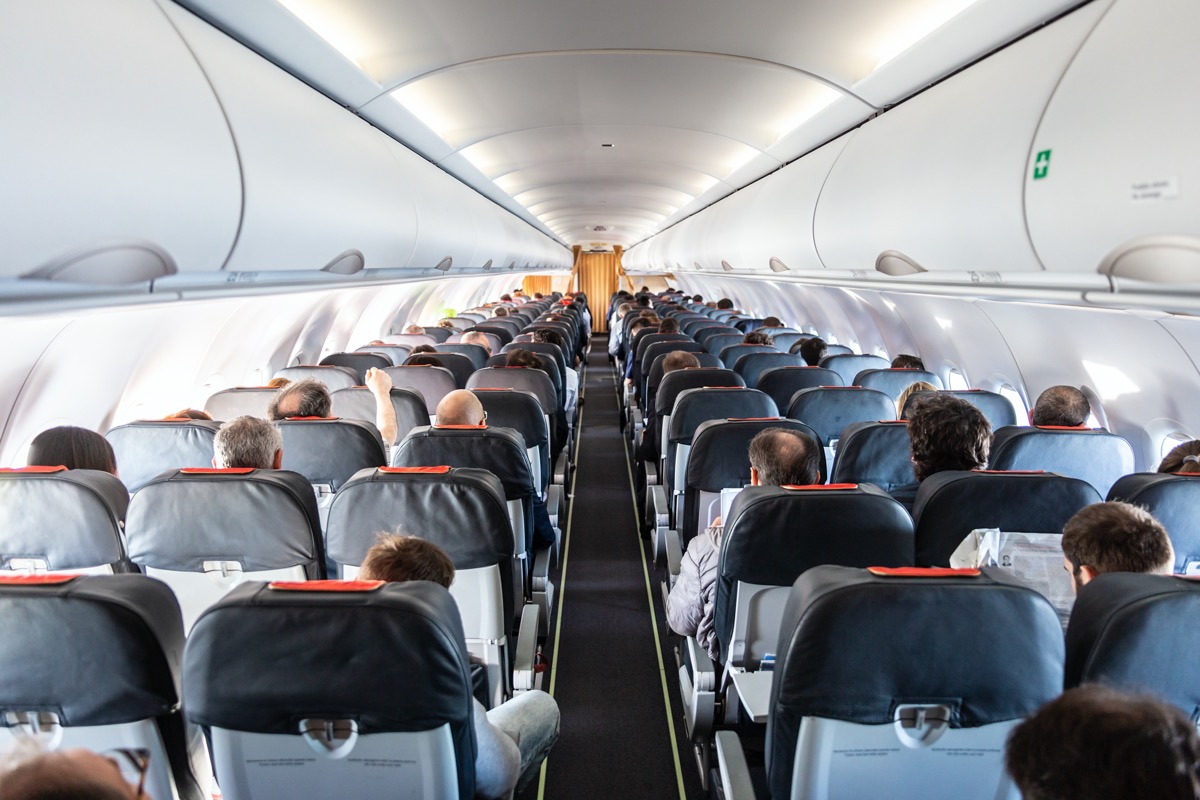American Airlines announced on June 26 that it would no longer block off middle seats in an effort to space people out. Quite the opposite, the airline said that it would return to full capacity flights starting July 1. (Since April, American has been flying at 85 percent capacity and only blocking half of all middle seats.) According to the statement, if a passenger feels uncomfortable being packed like sardines, then the carrier would try to accommodate by rebooking them on an emptier plane at no additional cost. Customers may change seats in their cabin too, pending weight and balance restrictions. RELATED: For more up-to-date information, sign up for our daily newsletter. This move follows similar controversial policies by United and Spirit Airlines. United never officially capped bookings or blocked middle or adjacent seats, instead saying that it would try to keep a seat open by every traveler, but it was not guaranteed. On full flights, United agreed to contact passengers 24 hours before departure so they could change plans if needed. They would also be allowed to switch flights if they arrived at the gate and 70 percent of the cabin had checked in. Three other airlines, however, are sticking to strict health regulations. Delta is booking half of first class and 60 percent of the main cabin. Both Delta and Southwest are blocking middle seats until the end of September. Southwest customers can select their own seats, which encourages families and households to sit together. JetBlue announced that it would continue leaving middle seats empty through July unless a group of passengers are traveling together and would like to sit side-by-side.ae0fcc31ae342fd3a1346ebb1f342fcb As the number of COVID-19 cases has spiked to a record high and some states—including Texas, where American is headquartered—have paused reopening plans, government officials and aviation experts are calling for federal guidelines across all carriers. “The [Department of Transportation] needs to take action here,” Sara Nelson, International President of the Association of Flight Attendants, told ABC. “This really has to be directed from the government because safety cannot conflict with the airlines’ desire to try to get revenue right now.” Every major airline has mandated that face masks must be worn by passengers and crew, but no universal rules around social distancing, seating, and cleaning exist. On June 24, the Allied Pilots Association (APA), the union that represents American Airlines’ pilots, proposed a plan in which the government would pay for seats on each flight, so nobody would be forced to sit next to a stranger. “Passengers would be encouraged to fly more thanks to uniform social distancing, airlines would be encouraged to operate more flights, and the government would ensure preservation of critical transportation infrastructure and related jobs,” APA President, Capt. Eric Ferguson, said in a statement. And for more safety tips for when you’re up in the air, This Is the Most Dangerous Place to Sit on an Airplane Right Now.
